Is Coconut Oil Truly Good For You?
People are waking up around the world to realize the many health benefits of coconut oil. It is an excellent moisturizing agent that can help skin dryness and premature graying of hair, and the Vedic tradition of "oil pulling" has proven its underlying merit today. Although many fear high saturated fat content, coconut oil may have some exceptions to this rule. Let's crack the shell on this coconut and find out if it's truly good for our health.
The Main Components In Coconut Oil
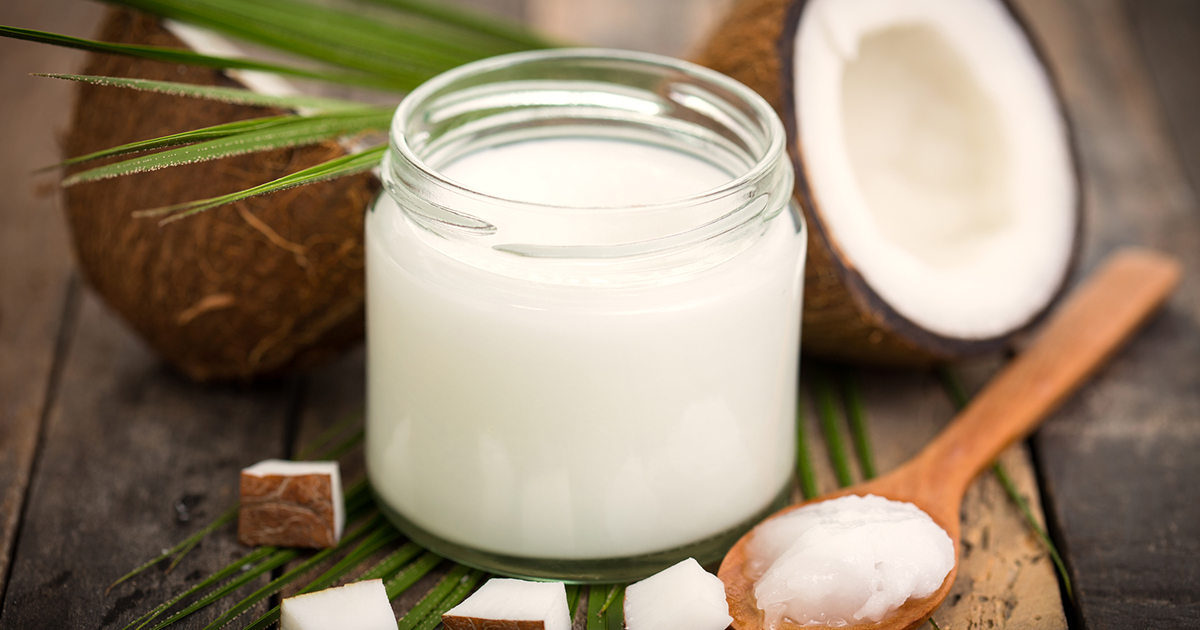
Coconut oil is considered unique, as this oil is not scientifically considered an oil at all, but a solid fat. For one, coconut oil is well known for its antibacterial properties. These properties reduce the bacterium that produces the acids associated with the softening of tooth enamel and decay, hence why "oil pulling" is incredibly popular today. Saturated fat is one of the main components in its diverse number of fats. Specifically, coconut oil is composed of ninety-two percent saturated fats and eight percent polyunsaturated and monounsaturated fats. More than half of the saturated fat content is lauric acid, a medium chain triglyceride, that directly converts into energy, and arguably, benefits the body with higher levels of good HDL cholesterol. Some of its other fatty acids like palmitic and myristic are more firmly associated with higher LDL cholesterol or the bad artery-clogging type. These same saturated fatty acids are why eggs, meat, poultry, butter, and cheese are associated with bad cholesterol and an increased risk of heart disease.
Find out next if it's a good oil to cook with.
Is It Healthy To Cook With?
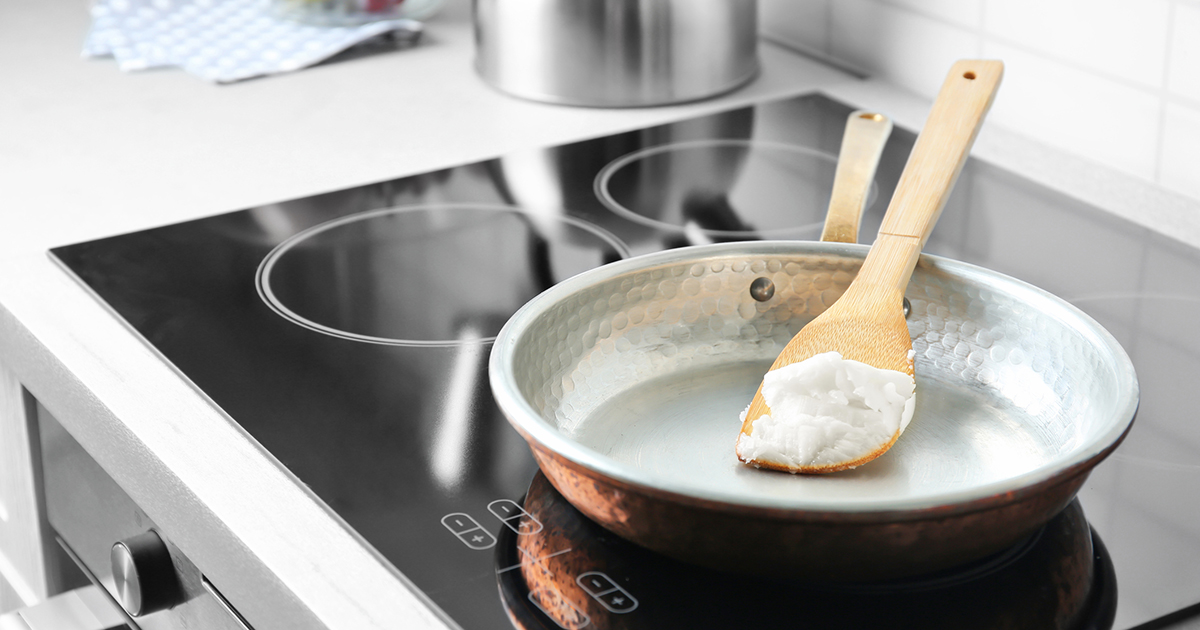
Cooking with coconut oil is more common in desserts and dishes that contain fish or chicken that may be complemented by the coconut aftertaste. The refined version of coconut oil is generally inexpensive and may not have the same coconut smell and aftertaste compared to its raw state. Some cooks use unrefined virgin coconut oil that is cold-pressed to retain the antioxidant polyphenols, which are often recognized for their anti-inflammatory properties. The high smoke point and extended shelf-life of coconut oil make it incredibly useful for greasing pans and for flavor in certain ethnic or exotic dishes. Since olive oil has more solid evidence of its monounsaturated fat health benefits, and the benefits of lauric acid found in coconut oil is still controversial, no one is completely able to answer the question "Is it healthy to cook with?" Cooking with coconut oil largely depends on the cook's taste and preferences and the recipe they are creating. Coconut oil has many health benefits, but further studies are required to determine if it is the healthiest oil to cook with.
Keep reading to learn more about its health benefits.
Is It Good For Your Health?
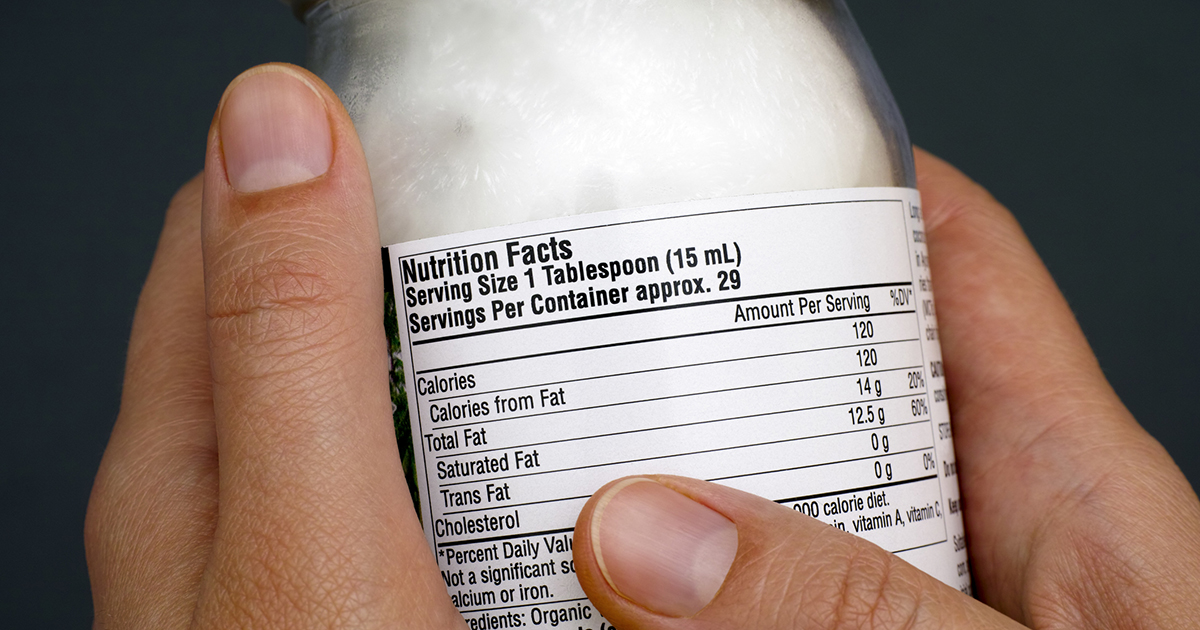
Aside from the controversial health benefit of lauric acid, there is little reason to believe consuming coconut oil is beneficial for your health. Although lauric acid is a medium-chain triglyceride that can immediately be used as energy by your body, if the energy is not needed at that time, it will still be stored within the body. The same can be said about protein as if it is consumed in excess volumes, what is not used is stored within the body. Therefore, coconut oil is a rich food that should be reserved for decadent desserts or exotic dishes where the flavor and richness can shine through. An excessive amount of coconut oil will simply be stored as fat within your body if it is not used for energy.
Continue reading to learn about its saturated fat content.
High In Saturated Fatty Acids
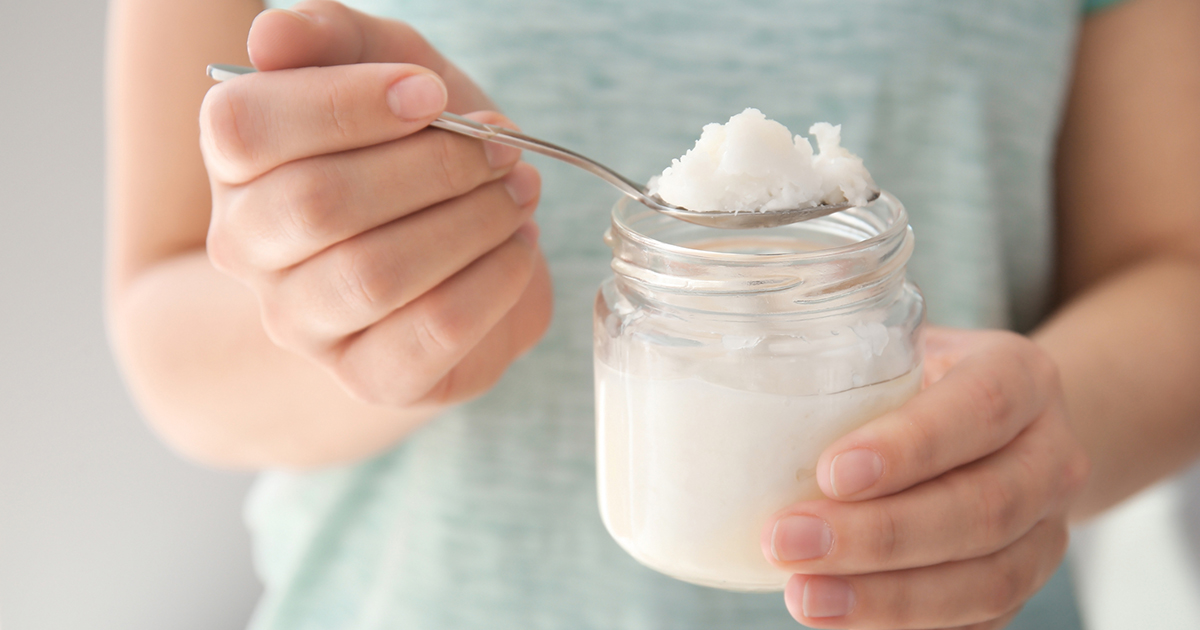
Foods that are high in saturated fatty acids are generally thought to be bad for heart health and may lead to heart disease. High-density lipoprotein (HDL) cholesterol from fish oil and other unsaturated fats is considered to be heart healthy as it is metabolized by the liver. The low-density lipoprotein (LDL) saturated fats making up coconut oil eventually accumulate and form plaques within the walls of arteries. When the plaque levels are too high, they can block the blood supply to organs, such as the small artery feeding the heart muscle itself. Plaque can dislodge from the wall of the artery and cause a stroke or embolism in any organ and can be fatal. It is, therefore, best to avoid foods high in saturated fatty acids as it can negatively impact your cholesterol. However, fats are necessary for a balanced diet, and when consumed in a small to moderate amount, coconut can still benefit the body greatly.
Next, see how coconut oil compares to other oils.
Comparing Coconut Oil To Other Oils
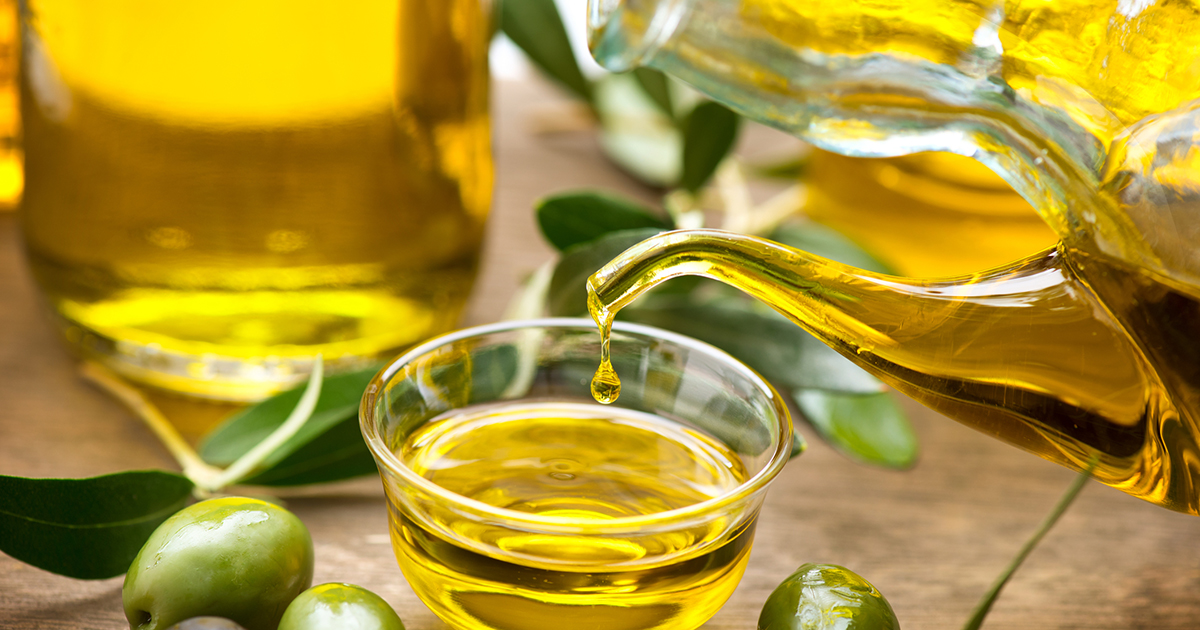
Virgin and Extra Virgin olive oils have lower smoke points and are more ideal for salad dressings and marinades. Baking desserts typically requires oils with a high smoke point such as coconut oil, canola oil, and vegetable oil. Is coconut oil healthier than olive oil? Well simply put, no. Coconut oil has a limited spectrum of benefits when it is consumed compared to other oils. Individuals typically desire their foods to be complemented by a neutral taste like that provided by olive, canola, or vegetable oil. Olive oil has more conclusive research to support the health benefits of its monounsaturated fats in patients with high cholesterol, compared to lauric acid and the tropical saturated fats infesting coconut oil. Overall, coconut oil does offer some health benefits for many individuals, but your best bet is to stick to oils that have hard proof detailing their benefits, such as olive oil.
